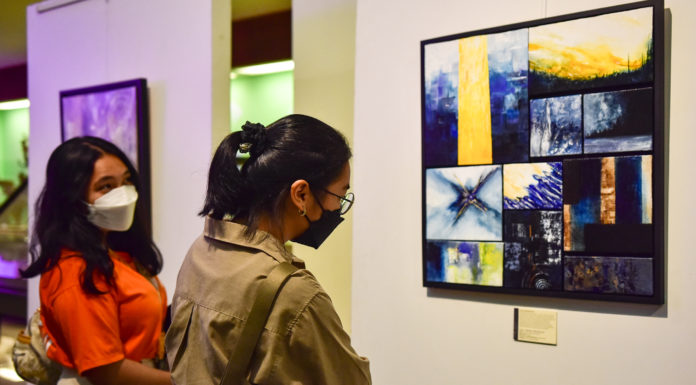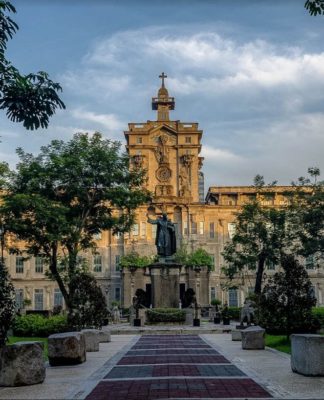EDUCATION in UST is now more expensive by P35 per unit.
The figure represents a three-percent increase, making the University the sixth most expensive college in the country, administration data showed.
Despite the annual hike, Thomasians should be “thankful” as the increase was not as big as the additional 10 percent levied by some schools this year, the administration said.
“[Dapat] magpasalamat ang mga estudyante,” UST comptroller Diomedes Yadao said in an interview. “UST will just maximize its budget because the three percent tuition increase is significantly lower than the Bangko Sentral ng Pilipinas’ [reported] inflation of up to five percent.”
“We also had to consider the financial capabilities of students,” he added.
According to the Commission on Higher Education, the average tuition hike this year is 10 percent, with more than 15 percent of private colleges and universities increasing tuition rates.
Yadao said the University ranked sixth on its own listing of colleges based on tuition, at P1,207 per unit for Academic Year 2011-2012, up from P1,172 last year when the administration imposed a 4-percent hike.
“Historically, tuition rates increase every year,” he said.
By law, schools are allowed to hike tuition to cover inflation—the increase in the prices of consumer goods—which averaged 4.2 percent from January to May based on data from the National Statistics Office.
Ateneo de Manila has the highest tuition rate of P2,401.85 per unit, followed by De La Salle University with an average of P2,312.75 per unit, according to Ateneo’s website and De La Salle’s registrar’s office.
Ateneo and De La Salle imposed five-percent and 3.5-percent tuition increases, respectively, this year, Yadao said.
Miriam College of Quezon City is the third most expensive at P1,737 per unit, followed by Mapua Institute of Technology at P1,481.55 and Far Eastern University at P1,250 per unit, Yadao said.
The three-percent hike was intended to “attract competent faculty members,” the administration official said.
“The increase is necessary to sustain the quality of education in UST, by providing competitive salaries to the faculty,” he said. “Kung hindi itataas ang suweldo, lilipat sila sa ibang school.”
Also by law, 70 percent of the increase will be allotted for the salaries of University employees, while the remaining 30 percent will be used “to cover the increase in the prices of commodities and services,” for “maintenance and improvement of facilities,” and return on investment, Yadao said.
Miscellaneous fees
The “energy fee,” meanwhile, has increased to P1,500 per semester from P1,200 to cover the “forecast increases in the rate of electricity charges,” according to a report by the Committee on Tuition and Other Fee Increases, a copy of which was obtained by the Varsitarian.
“Ang laki ng ibinabayad sa kuryente,” Yadao said.
The “athletic fee” also went up to P1,250, from P1,000 last year, in light of UST’s plan to join new events in the University Athletic Association of the Philippines, and to “provide more benefits to University athletes who [had] performed well in the previous games.”
“The existing budget [for the athletes] is no longer enough,” Yadao said, “because the University [shoulders] the athletes’ allowance, food, and accommodation.”
The Varsitarian, or the student publication, fee was increased by P30, because of rising printing costs. The Varsitarian is also undertaking the research and publication project, “400 Greatest Thomasians”, and is supporting University projects such as the Department of Literature’s “Premio Tomas,” the Quadricentennial literary prize.
A P400 cultural fee will be charged anew, to be used for the “40,000 Voices for 2012”, which will be the highlight of the Quadricentennial closing ceremony in January 2012.
The community singing event will be UST’s third attempt to enter the Guinness Book of Records, after the “largest human rosary” and “giant cross” in December and March, respectively.
But this will be the last time the cultural fee is collected, said Central Student Council (CSC) central board speaker Randolph Clet. Last year’s collection financed Quadricentennial activities last January.
“Next year, the cultural fee will be automatically removed from the schedule of fees,” said Clet.
There are no increases in other miscellaneous fees.
Student leaders said the rise in tuition was acceptable, but there should be improvements in the University.
“We are okay with the three-percent [increase],” said the new CSC president, Lorraine Taguiam. “We recognize the need to provide professors with competitive salaries so they would not be pirated by other schools.”
Clet said: “We expect more from our academic personnel because their salaries and benefits are better than what other Universities can offer.”
















